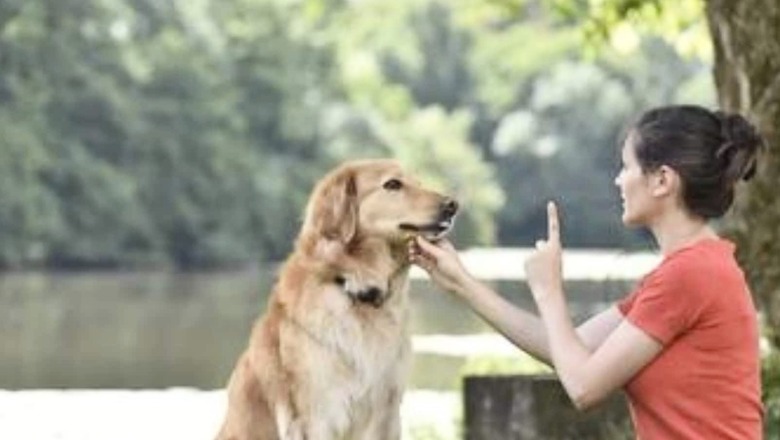
views
Bringing home a new dog is an exciting and rewarding experience. For all new pet parents, it could be an exciting journey to bring up a dog. It’s important to train your new pet properly to build a strong bond with the canine friend and this will also ensure the safety of others.
For first-time dog owners, training can seem daunting, but with the right approach and mindset, it can be a rewarding experience for both you and your pet. So, whether you’re bringing home a puppy or adopting an older dog, take the time to train them properly and enjoy the rewards of having a well-trained companion by your side.
Start training early
It’s important to start training your dog as soon as possible, ideally as soon as you bring them home. This will aid in the development of positive behavioural patterns and stop the emergence of harmful habits. Puppies are most receptive to learning between the ages of 8 to 16 weeks, so it’s crucial to start training during this period.
Use positive reinforcement
The best training method for dogs is positive reinforcement. This means rewarding your dog for good behaviour, such as sitting or coming when called. Treats, toys, and praise are all effective rewards that can help reinforce good behaviour.
Be consistent
Consistency is the key when it comes to training your dog. Make sure everyone at your home is using the same commands and training techniques so your dog isn’t confused. Consistency will also help your dog learn faster and make training more efficient.
Use short training sessions
Training sessions should be short, usually no more than 15 minutes at a time. This will help keep your dog engaged and prevent
them from becoming bored or frustrated. You can do multiple sessions throughout the day to help reinforce good behaviour.
Be patient
Training a dog takes time and patience. Don’t get frustrated if your dog doesn’t learn something right away. It’s important to be patient and consistent with your training and to celebrate even small victories along the way.
Teach basic obedience commands
Every dog should learn basic obedience commands such as sit, stay, come, and heel. These commands will help you control your dog in different situations and keep them safe. Consistent training of these commands is essential to ensuring your dog responds to them in any environment.
Socialise your dog
Socialisation is crucial for every dog, regardless of breed or age. This means exposing your dog to new people, animals, and environments. Socialising your dog will help prevent fear and aggression towards others and make them more confident and well-rounded.
Seek professional help if needed
If you’re struggling with training your dog, don’t hesitate to seek professional help from a trainer or behaviourist. They can help identify any issues and provide specialised training techniques to address them.
Read all the Latest Lifestyle News here



















Comments
0 comment